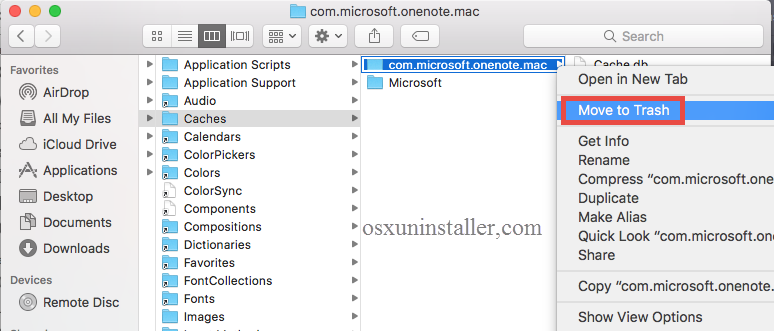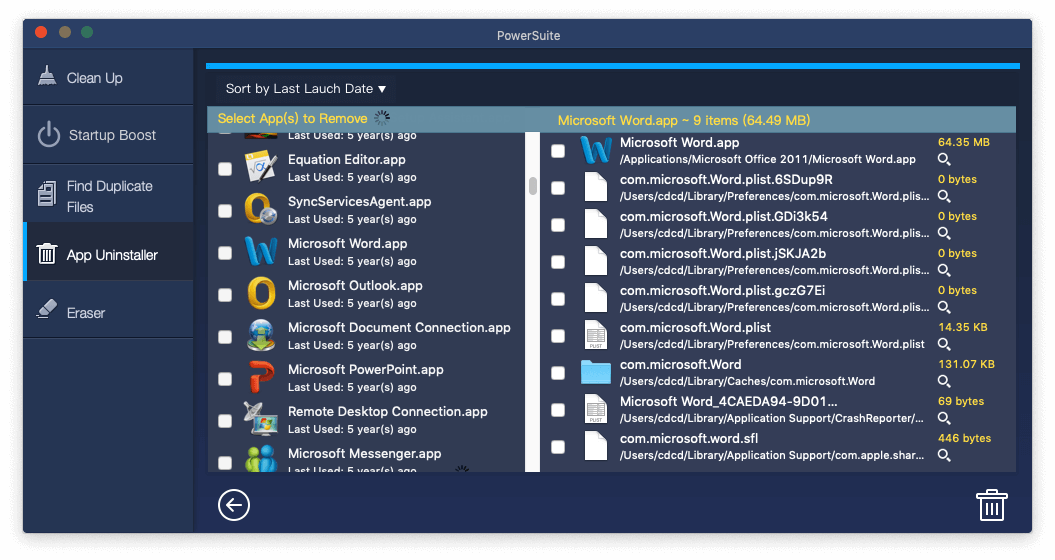Mac Os Uninstall Microsoft Autoupdate
- Uninstall Microsoft Office Mac
- Mac Uninstall Microsoft Autoupdate
- Uninstall Microsoft Autoupdate Mac Os X
If end users with Mac devices do not have Microsoft AutoUpdate configured, you can request that they do this by following the directions here: Update Office for Mac automatically. More information about updating the Company Portal is available here: Using your macOS device with Intune Company Portal. Option 1: Drag Microsoft AutoUpdate icon to the Trash. Open up the Finder, click Applications on the left side, and then select Microsoft AutoUpdate. Drag Microsoft AutoUpdate to the Trash (or right click on it and then select Move to Trash option). Right click the Trash icon and select Empty Trash.
Boot Camp Assistant User Guide
You must use Boot Camp Assistant to remove Windows, or a partition that was created with Boot Camp Assistant, from your Mac.
WARNING: Do not use any other utilities to remove Windows or a partition that was created with Boot Camp.
Start up your Mac in macOS.
Back up all important data stored on your Windows partition before you remove Windows.
WARNING: When Windows is removed, the Windows partition—as well as all data stored in the partition—will be erased permanently.
Quit all open apps and log out any other users.
Open Boot Camp Assistant , then click Continue.
If the Select Tasks step appears, select “Remove Windows 10 or later version,” then click Continue.
Do one of the following:
If your Mac has a single internal disk, click Restore.
If your Mac has multiple internal disks, select the Windows disk, select “Restore disk to a single macOS partition,” then click Continue.
Applies to:
Microsoft regularly publishes software updates to improve performance, security, and to deliver new features. Microsoft onenote evernote mac download.
To update Microsoft Defender ATP for Mac, a program named Microsoft AutoUpdate (MAU) is used. By default, MAU automatically checks for updates daily, but you can change that to weekly, monthly, or manually.
If you decide to deploy updates by using your software distribution tools, you should configure MAU to manually check for software updates. You can deploy preferences to configure how and when MAU checks for updates for the Macs in your organization.

Use msupdate
MAU includes a command-line tool, called msupdate, that is designed for IT administrators so that they have more precise control over when updates are applied. Instructions for how to use this tool can be found in Update Office for Mac by using msupdate.
In MAU, the application identifier for Microsoft Defender ATP for Mac is WDAV00. To download and install the latest updates for Microsoft Defender ATP for Mac, execute the following command from a Terminal window:
Set preferences for Microsoft AutoUpdate
This section describes the most common preferences that can be used to configure MAU. These settings can be deployed as a configuration profile through the management console that your enterprise is using. An example of a configuration profile is shown in the following sections.
Set the channel name
The channel determines the type and frequency of updates that are offered through MAU. Devices in InsiderFast (corresponding to the Insider Fast channel) can try out new features before devices in External (corresponding to the Insider Slow channel) and Production.
The Production channel contains the most stable version of the product.
Tip
In order to preview new features and provide early feedback, it is recommended that you configure some devices in your enterprise to InsiderFast or External.
Uninstall Microsoft Office Mac
| Domain | com.microsoft.autoupdate2 |
| Key | ChannelName |
| Data type | String |
| Possible values | InsiderFast External Production |
Warning
Mac Uninstall Microsoft Autoupdate
This setting changes the channel for all applications that are updated through Microsoft AutoUpdate. To change the channel only for Microsoft Defender ATP for Mac, execute the following command after replacing [channel-name] with the desired channel:
Set update check frequency
Change how often MAU searches for updates.
| Domain | com.microsoft.autoupdate2 |
| Key | UpdateCheckFrequency |
| Data type | Integer |
| Default value | 720 (minutes) |
| Comment | This value is set in minutes. |
Change how MAU interacts with updates
Change how MAU searches for updates.
| Domain | com.microsoft.autoupdate2 |
| Key | HowToCheck |
| Data type | String |
| Possible values | Manual AutomaticCheck AutomaticDownload |
| Comment | Note that AutomaticDownload will do a download and install silently if possible. |
Change whether the 'Check for Updates' button is enabled
Uninstall Microsoft Autoupdate Mac Os X
Change whether local users will be able to click the 'Check for Updates' option in the Microsoft AutoUpdate user interface.
| Domain | com.microsoft.autoupdate2 |
| Key | EnableCheckForUpdatesButton |
| Data type | Boolean |
| Possible values | True (default) False |
Disable Insider checkbox
Set to true to make the 'Join the Office Insider Program..' checkbox unavailable / greyed out to users.

| Domain | com.microsoft.autoupdate2 |
| Key | DisableInsiderCheckbox |
| Data type | Boolean |
| Possible values | False (default) True |
Limit the telemetry that is sent from MAU
Set to false to send minimal heartbeat data, no application usage, and no environment details.
| Domain | com.microsoft.autoupdate2 |
| Key | SendAllTelemetryEnabled |
| Data type | Boolean |
| Possible values | True (default) False |
Example configuration profile
The following configuration profile is used to:
- Place the device in the Insider Fast channel
- Automatically download and install updates
- Enable the 'Check for updates' button in the user interface
- Allow users on the device to enroll into the Insider channels
JAMF
Intune
To configure MAU, you can deploy this configuration profile from the management tool that your enterprise is using:
- From JAMF, upload this configuration profile and set the Preference Domain to com.microsoft.autoupdate2.
- From Intune, upload this configuration profile and set the custom configuration profile name to com.microsoft.autoupdate2.